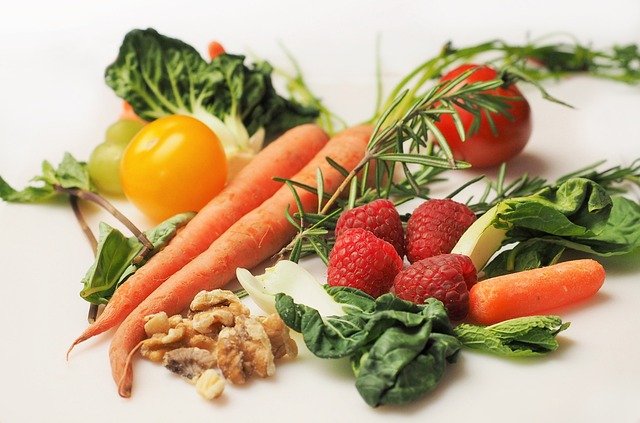Protein-Rich Superfoods Perfect For Your Summer Diet

Quinoa
Quinoa is a highly nutritious pseudo-cereal that offers a wide range of health benefits. It is rich in protein, containing all nine essential amino acids, making it a complete protein source suitable for vegetarians and vegans. This protein content makes quinoa an excellent food for muscle repair, growth, and overall tissue health. Additionally, quinoa is a good source of complex carbohydrates, providing a sustained release of energy and helping to keep blood sugar levels stable. This makes it an ideal choice for maintaining energy throughout the day and supporting overall physical performance.
Moreover, quinoa is packed with essential vitamins and minerals, including magnesium, iron, phosphorus, and manganese. Magnesium is essential for over 300 biochemical reactions in the body, including energy production, muscle function, and bone health. Iron is crucial for the formation of red blood cells and oxygen transport, while phosphorus is important for bone health and energy metabolism. Manganese acts as a powerful antioxidant and is involved in the formation of connective tissue and bone. Incorporating quinoa into your diet can help ensure you’re meeting your daily requirements for these essential nutrients, supporting overall health and well-being.
Furthermore, quinoa is a gluten-free grain, making it an excellent choice for those with gluten intolerance or celiac disease. It’s also high in fiber, which supports digestive health by promoting regular bowel movements, reducing the risk of constipation, and supporting a healthy gut microbiome. The fiber content of quinoa can also help promote satiety and aid in weight management by keeping you feeling full for longer periods. Additionally, quinoa contains antioxidants, including flavonoids and polyphenols, which help protect the body from oxidative stress and inflammation. Adding quinoa to your diet can thus contribute to better digestive health and overall well-being.
Lentils
Lentils are a highly nutritious legume that offers numerous health benefits. They are rich in protein, making them an excellent plant-based protein source for vegetarians and vegans. Additionally, lentils are packed with dietary fiber, which is essential for digestive health. The high fiber content in lentils supports regular bowel movements, helps to lower cholesterol levels, and promotes a healthy gut microbiome. This makes lentils a great choice for maintaining digestive regularity and supporting overall gastrointestinal health.
Moreover, lentils are a good source of complex carbohydrates, providing a steady release of energy and helping to stabilize blood sugar levels. They are also rich in essential vitamins and minerals, including folate, iron, potassium, and manganese. Folate is important for cell division and DNA synthesis, making lentils particularly beneficial for pregnant women. Iron is crucial for the formation of red blood cells and oxygen transport, while potassium helps regulate blood pressure and maintain proper muscle function. Manganese acts as a powerful antioxidant and is involved in various metabolic processes in the body. Incorporating lentils into your diet can help ensure you’re getting a wide range of essential nutrients to support overall health and well-being.
Edamame
Edamame, or young soybeans, are a nutritious and versatile legume that offers a variety of health benefits. They are an excellent source of plant-based protein, making them a valuable addition to vegetarian and vegan diets. A one-cup serving of edamame provides a significant portion of the daily recommended protein intake. This protein content is essential for muscle repair and growth, as well as for supporting overall tissue health. Additionally, edamame is rich in dietary fiber, which is important for digestive health. The high fiber content in edamame supports regular bowel movements, helps to lower cholesterol levels, and promotes a healthy gut microbiome. This makes edamame an excellent choice for maintaining digestive regularity and supporting gastrointestinal health.
Furthermore, edamame is packed with essential vitamins and minerals, including folate, vitamin K, iron, and magnesium. Folate is essential for cell division and DNA synthesis, making it particularly important during pregnancy. Vitamin K is important for blood clotting and bone health, while iron is crucial for the formation of red blood cells and oxygen transport. Magnesium plays a role in over 300 enzymatic reactions in the body and is important for muscle function, nerve function, and bone health. Incorporating edamame into your diet can help ensure you’re meeting your daily requirements for these essential nutrients, supporting overall health and well-being.
Hemp Seeds
Hemp seeds are a highly nutritious superfood that offers a wide range of health benefits. They are an excellent source of plant-based protein, containing all nine essential amino acids, making them a complete protein source for vegetarians and vegans. Additionally, hemp seeds are rich in healthy fats, particularly omega-3 and omega-6 fatty acids, which are essential for brain health, heart health, and reducing inflammation in the body. The ratio of omega-3 to omega-6 fatty acids in hemp seeds is considered optimal for human health, making them a valuable addition to a balanced diet.
Moreover, hemp seeds are packed with essential vitamins and minerals, including vitamin E, magnesium, phosphorus, and potassium. Vitamin E is a powerful antioxidant that helps protect the body from oxidative damage and supports immune function. Magnesium is essential for over 300 biochemical reactions in the body, including energy production, muscle function, and bone health. Phosphorus is important for bone health and energy metabolism, while potassium helps regulate blood pressure and maintain proper muscle function. Incorporating hemp seeds into your diet can help ensure you’re getting a wide range of essential nutrients to support overall health and well-being.
Tofu
Tofu, also known as bean curd, is a versatile and nutritious plant-based protein made from soybeans. It is an excellent source of protein, making it a valuable addition to vegetarian and vegan diets. Tofu is a complete protein, containing all nine essential amino acids that the body cannot produce on its own. This makes tofu an ideal protein source for supporting muscle repair and growth, as well as overall tissue health. Additionally, tofu is low in saturated fat and cholesterol, making it a heart-healthy protein option that can help reduce the risk of cardiovascular disease.
Moreover, tofu is rich in various essential nutrients, including iron, calcium, magnesium, and phosphorus. Iron is essential for the formation of red blood cells and oxygen transport, while calcium is crucial for bone health and muscle function. Magnesium is important for energy metabolism, nerve function, and muscle contraction, while phosphorus plays a role in bone health and the production of DNA and RNA. Incorporating tofu into your diet can help ensure you’re meeting your daily requirements for these essential nutrients, supporting overall health and well-being.
Spirulina
Spirulina is a nutrient-rich blue-green algae that offers a wide array of health benefits. It is considered a superfood due to its high concentration of vitamins, minerals, and antioxidants. Spirulina is a complete protein source, containing all nine essential amino acids, making it an excellent option for vegetarians and vegans looking to increase their protein intake. Additionally, spirulina is rich in vitamins and minerals, including vitamin B complex, iron, and beta-carotene. Vitamin B complex is essential for energy production and supports the nervous system, while iron is crucial for the formation of red blood cells and oxygen transport. Beta-carotene, a precursor to vitamin A, is a powerful antioxidant that helps protect the body from oxidative stress and supports eye health.
Moreover, spirulina is one of the most concentrated sources of chlorophyll, a natural pigment that gives plants their green color. Chlorophyll is known for its detoxifying properties and may help support the body’s natural detoxification processes by removing toxins and heavy metals from the bloodstream. Additionally, spirulina contains phycocyanin, a pigment with potent anti-inflammatory and antioxidant properties. Phycocyanin has been shown to reduce inflammation, protect against oxidative damage, and support the immune system. Including spirulina in your diet can help support overall health and well-being by providing a concentrated source of essential nutrients and antioxidants.
Furthermore, spirulina has been associated with various health benefits, including improved immune function, increased energy levels, and enhanced exercise performance. Its high antioxidant content helps protect the body from oxidative stress and supports a healthy immune system. Some studies suggest that spirulina supplementation may improve endurance and reduce muscle fatigue during exercise, making it a popular choice among athletes and fitness enthusiasts. Additionally, spirulina’s high protein content and nutrient density make it an ideal supplement for individuals looking to support their overall health and vitality. Incorporating spirulina into your diet, either in powder or tablet form, can provide a convenient and effective way to boost your nutrient intake and support your health goals.



